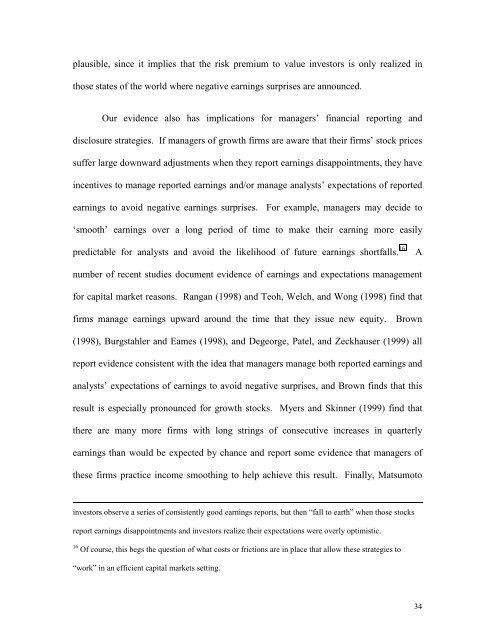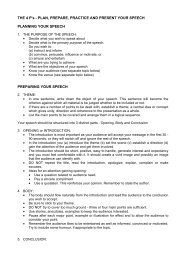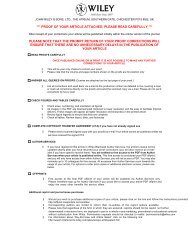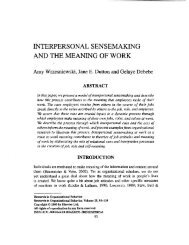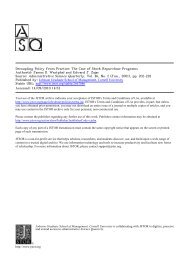Earnings Surprises, Growth Expectations, and Stock Returns:
Earnings Surprises, Growth Expectations, and Stock Returns:
Earnings Surprises, Growth Expectations, and Stock Returns:
You also want an ePaper? Increase the reach of your titles
YUMPU automatically turns print PDFs into web optimized ePapers that Google loves.
plausible, since it implies that the risk premium to value investors is only realized in<br />
those states of the world where negative earnings surprises are announced.<br />
Our evidence also has implications for managers’ financial reporting <strong>and</strong><br />
disclosure strategies. If managers of growth firms are aware that their firms’ stock prices<br />
suffer large downward adjustments when they report earnings disappointments, they have<br />
incentives to manage reported earnings <strong>and</strong>/or manage analysts’ expectations of reported<br />
earnings to avoid negative earnings surprises. For example, managers may decide to<br />
‘smooth’ earnings over a long period of time to make their earning more easily<br />
predictable for analysts <strong>and</strong> avoid the likelihood of future earnings shortfalls. 16 A<br />
number of recent studies document evidence of earnings <strong>and</strong> expectations management<br />
for capital market reasons. Rangan (1998) <strong>and</strong> Teoh, Welch, <strong>and</strong> Wong (1998) find that<br />
firms manage earnings upward around the time that they issue new equity. Brown<br />
(1998), Burgstahler <strong>and</strong> Eames (1998), <strong>and</strong> Degeorge, Patel, <strong>and</strong> Zeckhauser (1999) all<br />
report evidence consistent with the idea that managers manage both reported earnings <strong>and</strong><br />
analysts’ expectations of earnings to avoid negative surprises, <strong>and</strong> Brown finds that this<br />
result is especially pronounced for growth stocks. Myers <strong>and</strong> Skinner (1999) find that<br />
there are many more firms with long strings of consecutive increases in quarterly<br />
earnings than would be expected by chance <strong>and</strong> report some evidence that managers of<br />
these firms practice income smoothing to help achieve this result. Finally, Matsumoto<br />
investors observe a series of consistently good earnings reports, but then “fall to earth” when those stocks<br />
report earnings disappointments <strong>and</strong> investors realize their expectations were overly optimistic.<br />
16 Of course, this begs the question of what costs or frictions are in place that allow these strategies to<br />
“work” in an efficient capital markets setting.<br />
34


